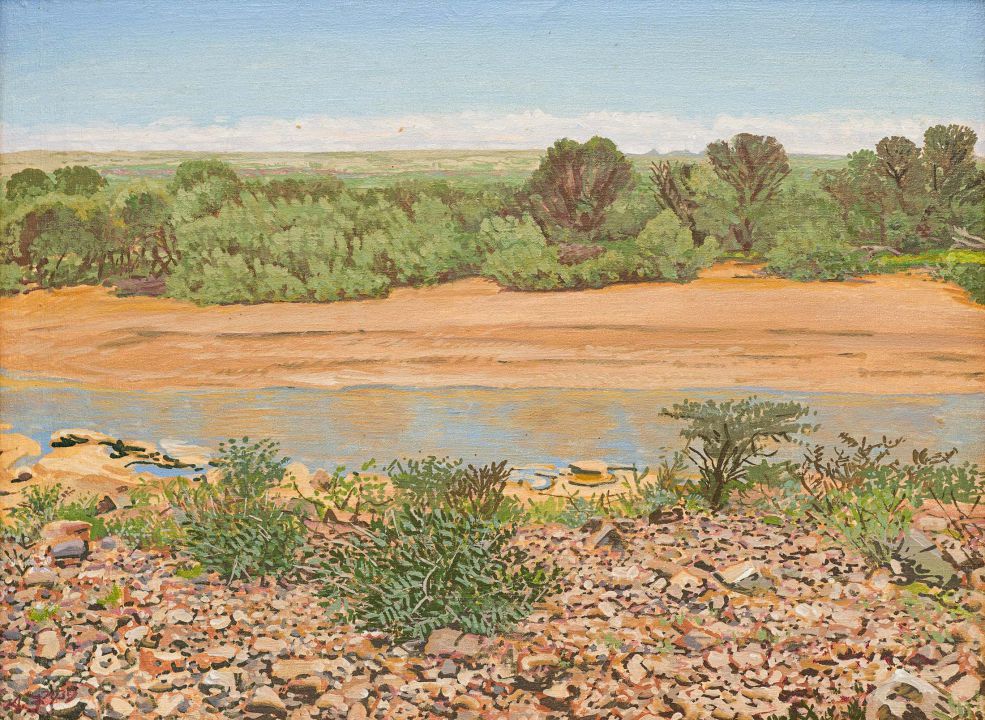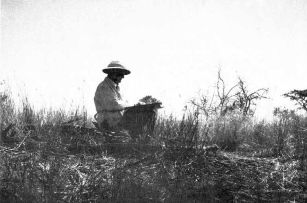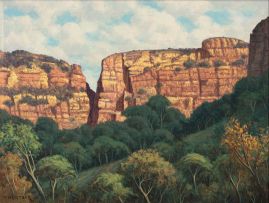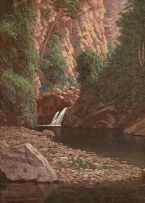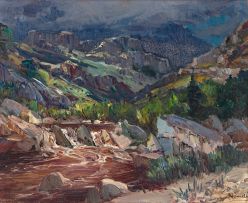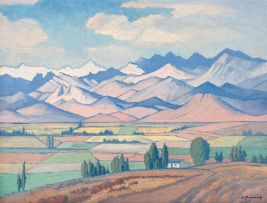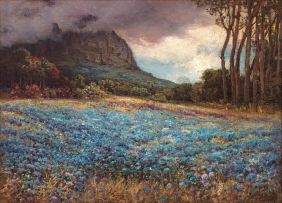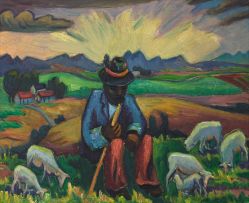Important South African & International Art, Decorative Arts & Jewellery
Live Auction, 6 March 2017
Important South African and International Art - Evening Sale
Incl. Buyer's Premium & VAT
About this Item
signed with the artist's initials and dated 1939
Notes
The German, middle-aged Adolph Jentsch, having trained in Dresden, arrived in the then South West Africa in 1938. Having felt stifled in his work by the pressures of pre-war German policy and taste, the desert landscape around him, immeasurably vast and still, proved a revelation. He worked quickly towards a one-man show at the Grossherzog Hotel in Windhoek, and then made painting trips into the country's scorched, southern areas. While reinvigorated in his new environment, and despite having rubbed shoulders in Dresden with the likes of George Grosz, Kurt Schwitters and Max Pechstein, each of whom would become synonymous with various European and American modernisms, Jentsch remained committed to a conservative, controlled approach to his painting.
Bearing in mind the artist's iconic vistas of silver grasses, hardy scrub and sun-bleached, thirsty plateaux, the present lot is particularly unusual as it shows a flowing river and the desert in full bloom. Jentsch chose not to identify the spot, nor indeed the month, but one might imagine the artist, perched on his fold-away stool (fig.1), painting the scene in the summer of 1939 on his much-interrupted journey to Eirup, the farm owned by Richard Schröders, some 80 kilometres north-east of Mariental. The Auob River, which had to be crossed several times on the way, was in spate at the time, and forced a number of apparently happy delays. Olga Levinson, in her very personal monograph on the artist, noted how much Jentsch enjoyed the amusing adventure of South West African travel, and how readily he would wade into the current in search of the best places for his vehicle to cross. But she also remarked on how moved the artist had been by the desert's rapid, near-miraculous transformation after the rain.1 There is certainly much in this picture to suggest his fascination with the details of nature, and a real sense of his wonder at what he saw in front of him. On the nearest bank he laid out an intricate, decorative pattern of pebbles using spots and dense strokes of lavender, orange, grey and baked-pink clay. By way of contrast, he painted the new shoots and bushes with expressive, calligraphic flicks of shimmering green. The composition, however, he organised along strong horizontal lines: the reflective water, painted with as much yellow as blue, runs across the canvas, while above it and below the stony bank, the leafy treeline, the eroded beach, and the wide sky form parallel bands of differing colour and texture.
1.Olga Levinson. (1973) Adolph Jentsch. Cape Town: Human & Rousseau Publishers. Page 43
